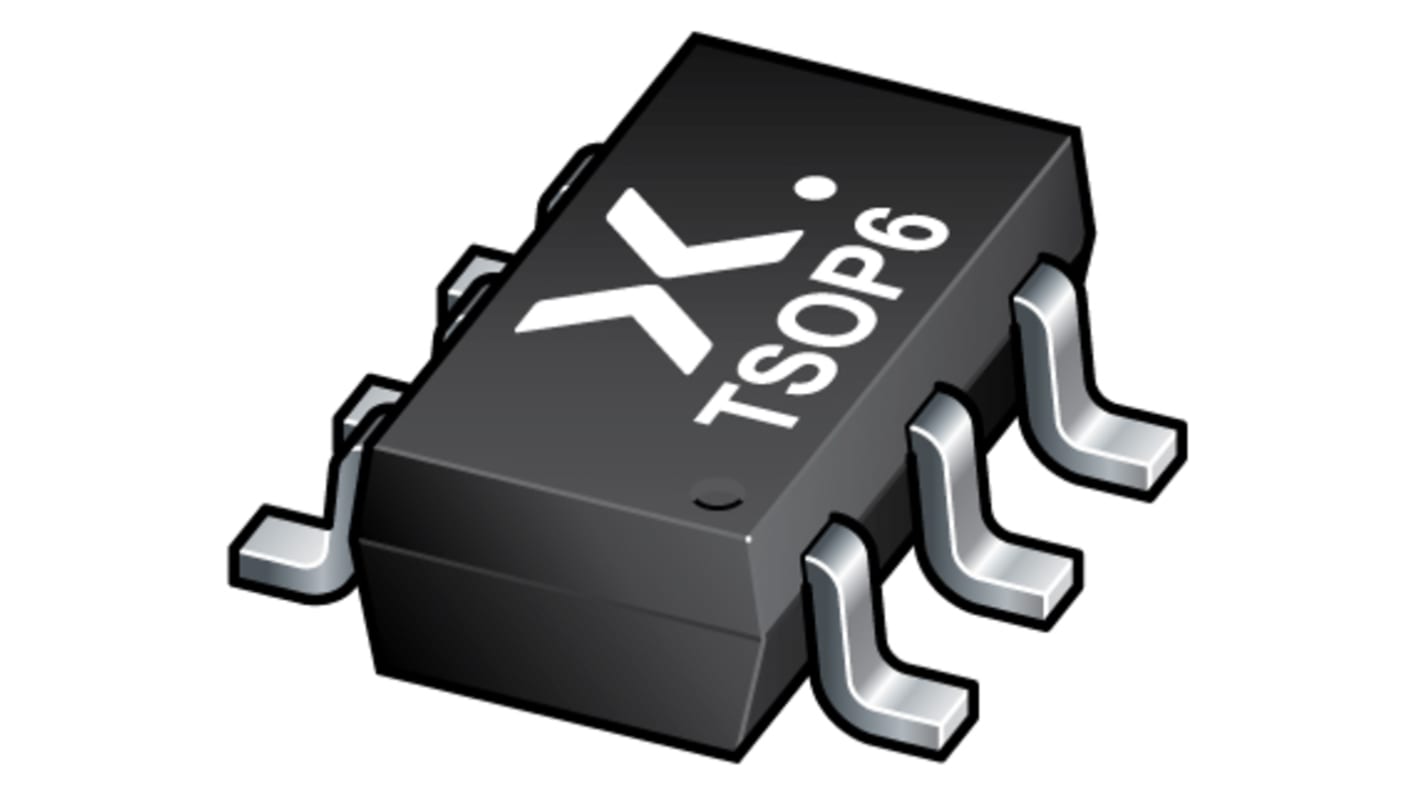Nexperia 74LVC2G14GV,125 Dual Schmitt Trigger CMOS Inverter, 6-Pin TSOP
- RS Stock No.:
- 170-5382
- Mfr. Part No.:
- 74LVC2G14GV,125
- Brand:
- Nexperia

Subtotal (1 pack of 50 units)*
£3.65
(exc. VAT)
£4.40
(inc. VAT)
FREE delivery for orders over £50.00
- 950 unit(s) ready to ship
- Plus 3,000 unit(s) shipping from 17 December 2025
Units | Per unit | Per Pack* |
|---|---|---|
| 50 - 200 | £0.073 | £3.65 |
| 250 - 450 | £0.033 | £1.65 |
| 500 - 1200 | £0.031 | £1.55 |
| 1250 - 2450 | £0.028 | £1.40 |
| 2500 + | £0.027 | £1.35 |
*price indicative
- RS Stock No.:
- 170-5382
- Mfr. Part No.:
- 74LVC2G14GV,125
- Brand:
- Nexperia
Select all | Attribute | Value |
|---|---|---|
| Brand | Nexperia | |
| Logic Function | Inverter | |
| Input Type | Schmitt Trigger | |
| Output Type | Schmitt Trigger | |
| Number of Elements per Chip | 2 | |
| Schmitt Trigger Input | Yes | |
| Maximum Propagation Delay Time @ Maximum CL | 12 ns @ 50 pF | |
| Maximum High Level Output Current | -32mA | |
| Maximum Low Level Output Current | 32mA | |
| Mounting Type | Surface Mount | |
| Package Type | TSOP | |
| Pin Count | 6 | |
| Logic Family | 74LVC | |
| Dimensions | 3.1 x 1.7 x 1mm | |
| Height | 1mm | |
| Maximum Operating Supply Voltage | 5.5 V | |
| Length | 3.1mm | |
| Width | 1.7mm | |
| Maximum Operating Temperature | +125 °C | |
| Propagation Delay Test Condition | 50pF | |
| Minimum Operating Supply Voltage | 1.65 V | |
| Minimum Operating Temperature | -40 °C | |
| Select all | ||
|---|---|---|
Brand Nexperia | ||
Logic Function Inverter | ||
Input Type Schmitt Trigger | ||
Output Type Schmitt Trigger | ||
Number of Elements per Chip 2 | ||
Schmitt Trigger Input Yes | ||
Maximum Propagation Delay Time @ Maximum CL 12 ns @ 50 pF | ||
Maximum High Level Output Current -32mA | ||
Maximum Low Level Output Current 32mA | ||
Mounting Type Surface Mount | ||
Package Type TSOP | ||
Pin Count 6 | ||
Logic Family 74LVC | ||
Dimensions 3.1 x 1.7 x 1mm | ||
Height 1mm | ||
Maximum Operating Supply Voltage 5.5 V | ||
Length 3.1mm | ||
Width 1.7mm | ||
Maximum Operating Temperature +125 °C | ||
Propagation Delay Test Condition 50pF | ||
Minimum Operating Supply Voltage 1.65 V | ||
Minimum Operating Temperature -40 °C | ||
- COO (Country of Origin):
- MY
Cleans up the noisy signals
Reshapes the signals in complex layouts
Suitable for mixed 3.3 V and 5.0 V applications
Wide voltage supply range
Input hysteresis
Open drain output options
CMOS and TTL variants
Overvoltage tolerant input options
Sine wave to square wave conversion
Interface between analog and digital environments
Increase noise immunity in design
Relaxation oscillators
Related links
- Nexperia 74LVC2G14GV 6-Pin TSOP
- Nexperia 74HC2G14GW 6-Pin SC-88
- Nexperia 74HC2G04GW 6-Pin SC-88
- Nexperia 74LVC2G17GV 6-Pin TSOP
- Texas Instruments SN74LVC2G14DBVR Dual Schmitt Trigger CMOS Inverter, 6-Pin SOT-23
- Texas Instruments SN74LVC2G14DCKT Dual Schmitt Trigger CMOS Inverter, 6-Pin SC-70
- Nexperia 74LVC2G14GW 6-Pin SC-88
- Nexperia 74HCT2G14GW 6-Pin SC-88
